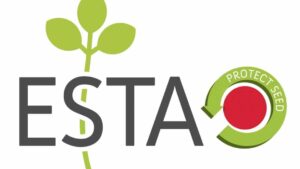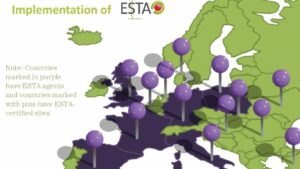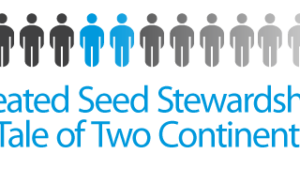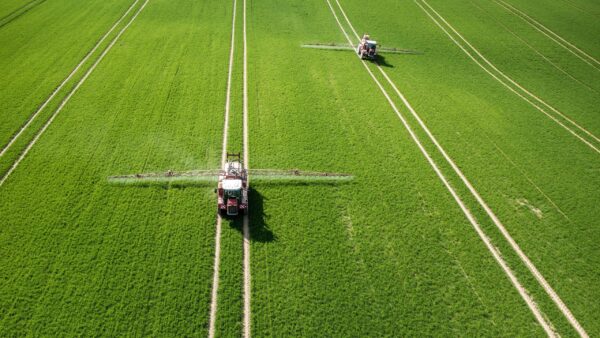Check out what’s happening in the global seed industry, from a new quality assurance scheme for seed treatment in Europe to the discovery of wild soybeans linked to salt tolerance in China.
STATUS China
A team of researchers from The Chinese University of Hong Kong, BGI (formerly known as the Beijing Genomics Institute) and other institutes have identified a wild soybean gene that’s linked to salt tolerance, with implications for improving the crop to grow in saline soils. Published online in Nature Communications, this study provides a strategy to unveil novel genomic information for crop improvement.
Soybeans are an important crop, but domestication and human selection have resulted in less genetic diversity than their wild counterparts. Among the lost genes, some might play important roles for the adaptation to different environments. Scientists used wild soybean as a resource for investigating the valuable genes that adapt to certain environmental conditions.
The team sequenced and assembled a draft genome of wild soybean W05, and developed a recombinant inbred population for genotyping-by-sequencing and phenotypic analyses to identify multiple quantitative trait loci (QTLs) relevant to traits of interest in agriculture.
Using the de novo sequencing data from this work and their previous germplasm re-sequencing data, researchers discovered a novel ion transporter gene, GmCHX1, and suggested it might be related to salt tolerance.
During the following rapid gain-of-function tests, the GmCHX1 gene conferred its function on salt tolerance, and suggested GmCHX1 acted probably through lowering the Na+/K+ ratio. The authors assumed that the elimination of GmCHX1 in salt-sensitive germplasms might be an example of negative selection against a stress tolerant gene in unstressed environments. The expression of stress tolerant genes might be an energy burden on the plant if the functions of these genes are not required.
In this study, researchers developed an efficient strategy using the combination of whole-genome de novo sequencing, high-density-marker QTL mapping by re-sequencing and functional analyses, which could enhance the efficiency of uncovering QTLs and genes for beneficial traits in crop breeding. — Source BGI
STATUS Europe
The 2013-14 field study of honeybee colony overwintering losses in Europe shows that losses are at the lowest level in years — averaging nine per cent across 19 European countries and Israel and Algeria. A preliminary analysis of the data shows that the mortality rate for the 2013-14 winter varied between countries, ranging from six per cent in Norway to 14 per cent in Portugal. Overwintering losses are an important indicator of general bee health. Losses below 10 per cent are considered to be normal. Beekeepers responding to the survey manage more than 376,754 colonies. Additionally, England and Wales reported losses of about eight per cent for the same period.
“The contribution of many factors, which are correlated to colony losses seem to be very dependent on weather conditions,” says Romée van der Zee, co-ordinator of the COLOSS Monitoring and Diagnosis Working Group. “Colonies built their brood nests late because of the relatively cold spring in 2013. This may have decreased the number of reproductive cycles of the parasitic varroa mite, producing fewer mites. Good weather in the summer then provided excellent foraging opportunities.”
COLOSS is a honeybee research association funded by the Ricola Foundation, which aims to explain and prevent massive honeybee colony losses. COLOSS does not directly support science, but aims to coordinate research activities across Europe and worldwide, promoting cooperative approaches and research with a strong focus on the transfer of science into beekeeping practices.
— Source COLOSS
STATUS Spain
The European Seed Association’s quality assurance scheme for seed treatment and treated seed, known as the European Seed Treatment Assurance (ESTA), further establishes its position in the European Union by accrediting the Asociatión Nacional de Obtentores Vegetales (ANOVE) as a fourth national agent.
“This project shows the professionalism and commitment of the seed industry to the quality and traceabilty of our food from its origins,” says Antonio Villaroel, secretary general of ANOVE, a private, non-profit association that represents Spanish companies involved in the research, development and exploitation of new plant varieties and other biotechnological inventions involving plants.
ESTA combines a number of elements to guarantee professional, high quality seed treatment applications, such as independent certification of treatment sites by accredited auditors, defined quality reference values with a uniform testing protocol and safe use of information and respective labeling for users.
According to ESA, ANOVE’s expertise will guarantee a successful roll out of ESTA in Spain. “We are very happy to welcome ANOVE, our Spanish member association, as a
national agent for the implementation of our European Seed Treatment Assurance scheme, ESTA,” says Garlich von Essen, ESA secretary general. “ESTA is a key instrument in assuring quality and safety for our customers and the environment and to maintain seed treatment as the most modern and most sustainable way of seed and crop protection in Europe.”
— Source ESA
STATUS United States
The American Soybean Association (ASA) teamed up with the Illinois Soybean Association to host the first-ever Washington, D.C., Biotechnology Roundtable, which focused on the acceleration of government approval of biotech seed for soybeans and other crops.
ASA Illinois director Ron Moore and CEO Steve Censky, along with president Ray Gaesser of Iowa spoke with more than 100 farmers, researchers, leaders of agricultural organizations and federal officials in Washington about the benefits of biotechnology.
Michael Hawkins of the Embassy of Canada in Washington joined Censky to discuss the approach to biotechnology issues from like-minded countries and stressed the strong cooperation between the United States and Canada in this effort.
In addition, Ambassador Darci Vetter, chief agricultural negotiator for the U.S. Trade Representative, delivered the keynote address. Other regulatory speakers included representatives from the Environmental Protection Agency, the U.S. Department of Agriculture’s Animal and Plant Health Inspection Service, USDA and the Department of State. Additional speakers included David Zilberman, University of California-Berkeley, Jim Sutter, U.S. Soybean Export Council, MAIZALL’s Floyd Gaibler and Gary Martin of the North American Grain Exporters Association.
Michael Firko of USDA-APHIS talked about the progress USDA is making in clearing the backlog of approvals of new biotechnology designed to help crops withstand pests, disease and harsh climates and to use crop nutrients more efficiently. However, Zilberman said that approvals for new biotechnology traits for soybean seed can take 10 to 15 years, pushing costs as high as $160 million to comm-ercialize new biotechnology.
Robert Paarlberg, renowned author and advisor to numerous food and agricultural organizations worldwide, reiterated the proven safety of biotechnology. A professor of political science at Wellesley College and public policy at Harvard University’s Weatherhead Center for International Affairs, Paarlberg observed that opposition to biotechnology comes from environmental and anti-globalization groups in more affluent countries. He said the current state of worldwide regulation deprives people of food by preventing use of biotechnology by farmers in poorer countries who are growing food crops, such as wheat, rice and potatoes, and making the technology available only to farmers in affluent countries, such as the United States, who raise biotech crops.
Among the roundtable’s sponsors were DuPont Pioneer, Dow AgroSciences, Monsanto, the U.S. Soybean Export Council and the National Association of Wheat Growers. — Source ASA
















